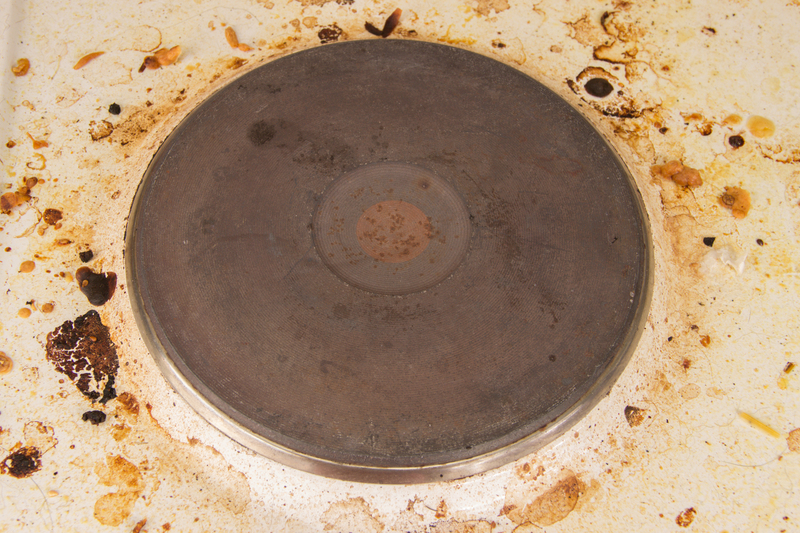Applying Feng Shui at Home
Posted on 31/12/2024
Feng Shui, the ancient Chinese art of placement, seeks to balance the energies of any space to ensure health, prosperity, and good fortune for those inhabiting it. By arranging home furnishings, decor, and design elements according to Feng Shui principles, you can create a harmonious environment conducive to a positive and fulfilling life. This comprehensive guide will delve into the essential aspects of applying Feng Shui in your home.
Understanding the Basics of Feng Shui
Feng Shui, which translates to "wind and water," is rooted in the idea that everything is interconnected and that we are influenced by our surroundings. Fundamental to this practice are the five elements: wood, fire, earth, metal, and water. Each element is associated with specific colors, shapes, and materials and should be balanced throughout your home for optimal energy flow.
Additionally, the Bagua map--a tool used in Feng Shui--divides a space into nine areas, each corresponding to different aspects of life such as wealth, family, and health. Aligning these areas with your home's layout can pinpoint where adjustments might encourage better energy flow.

Room-by-Room Feng Shui Application
Applying Feng Shui principles involves a room-by-room examination to ensure each area promotes the desired energy. Here's how to integrate Feng Shui into different parts of your home:
Living Room
The living room is one of the most active spaces in a home, often serving as a hub for family and social interactions. To enhance its Feng Shui:
- Furniture Position: Arrange seating in a way that promotes conversation and connection. Avoid having backs to the door as it disrupts the energy flow and can make occupants feel insecure.
- Balance Elements: Use decor that represents all five elements. For instance, incorporate plants (wood), a fireplace or red accents (fire), earthen objects (earth), metallic finishes (metal), and a water feature or blue hues (water).
- Declutter: A clutter-free living room promotes better energy flow and creates a sense of calm and order.
Bedroom
The bedroom is your private sanctuary, a place for rest and rejuvenation. Applying Feng Shui here can vastly improve your sleep quality and overall well-being.
- Bed Placement: Position your bed diagonally across from the door but not directly in line with it, known as the "command position." This arrangement ensures that you are not startled and that energy flows smoothly around you.
- Color Scheme: Use calming, earthy tones and avoid overly stimulating hues.
- Electronics: Minimize or eliminate electronic devices in the bedroom to reduce distractions and electromagnetic fields that can disrupt rest.
Kitchen
The kitchen is the area of nourishment and should foster both health and prosperity. Here are some Feng Shui tips for your kitchen:
- Stove Placement: The stove represents wealth and should be placed so the cook can see the entrance but is not directly in line with the door.
- Cleanliness: Keep the kitchen clean and all utensils in good repair, symbolizing abundance and good health.
- Color Balance: Incorporate colors that resonate with health and growth, such as greens, which represent the wood element associated with new beginnings and vitality.
Mirrors and Feng Shui
Mirrors are powerful tools in Feng Shui as they can double energy, reflect light, and enhance certain energies within the home. However, their placement is crucial:
- Avoid Placing Mirrors in Front of Beds: This can disrupt sleep due to the reflection of energy.
- Enhance Dining Rooms with Mirrors: Mirrors in dining rooms can signify abundance and prosperity by visually doubling the food laid out.
- Watch Placement of Mirrors in Hallways: Ensure mirrors in hallways don't cut off or reduce the perceived size of the space.
Pros and Cons of Applying Feng Shui
Pros:
- Promotes a harmonious living environment.
- Fosters emotional and physical well-being.
- Helps to improve financial and personal success.
- Encourages a clutter-free, organized home.
Cons:
- Can be complex and overwhelming for beginners.
- Some changes might require significant effort or expense.
- Interpretations of Feng Shui principles can vary, leading to conflicting advice.
Feng Shui Tips
- Regularly clear clutter to maintain energy flow.
- Introduce indoor plants for natural energy and air purification.
- Use crystals and natural stones to enhance specific energy areas.
- Ensure your home has adequate lighting and ventilation.
- Personalize your space with items that bring joy and positive memories.

Conclusion
Applying Feng Shui principles to your home can significantly impact your quality of life by creating a harmonious, balanced, and energetically positive environment. While implementing these principles might require some effort, the benefits of improved well-being, prosperity, and tranquility are well worth it. Remember, the key to an effective Feng Shui setup is understanding the unique dynamics of your space and making thoughtful, intentional changes.
Takeaways
- Feng Shui enhances the flow of positive energy in your home.
- Each room should be arranged according to specific principles to optimize well-being.
- Maintaining balance among the five elements is crucial for harmony.
- Mirrors, while beneficial, need careful placement to avoid negative impacts.
Latest Posts
Using Toothpaste to Keep Your Iron Plate Clean
Cleaning Beverage Spills from Carpets









